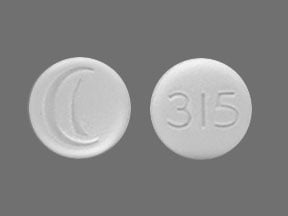
Silenor Coupons & Savings Card – Discount Prices from $42.64
Brand for: Doxepin
My prescription
Edit
3MG, Doxepin (30 Tablets)
Select pharmacy

CVS
$42.64
COUPON PRICE
Walgreens
$64.80
COUPON PRICE
Albertsons
$67.02
COUPON PRICE
Walmart
$150.39
COUPON PRICESilenor savings card
Show this card to your pharmacist
CVS
$42.64
BIN
ID
PCN
GRP
019876
LH413D09E3
CHIPPO
LHX
Powered by
Related tricyclic antidepressants prescriptions
More prescriptions for itching
Related tricyclic antidepressants prescriptions
More prescriptions for itching
Price history for Silenor (brand) & Doxepin (generic)
30 Tablets, 3MG
Average retail price for Silenor
Average retail price for Doxepin
Average SaveHealth price for Doxepin
Our price history data is based on aggregated prescription data collected from participating pharmacies in America. Our prescription data updates daily to reflect the latest price changes. If you notice a missing data point, it means there wasn't sufficient data available to generate a monetary value for that date.
Over the last 12 months, the average discount price of Silenor is $83.82 using the SaveHealth savings card. That's an average savings of 87.11% on Silenor with our discount card.
*Retail prices are based on pharmacy claims data, and may not be accurate when we don't have enough claims.
Silenor (Doxepin) dosage forms
Dosage Quantity Price from Per unit 3MG 30 Tablets $42.64 $1.42 6MG 30 Tablets $42.64 $1.42
| Dosage | Quantity | Price from | Per unit |
|---|---|---|---|
| 3MG | 30 Tablets | $42.64 | $1.42 |
| 6MG | 30 Tablets | $42.64 | $1.42 |
Is Silenor a good sleeping pill?
Silenor, which contains the active ingredient doxepin, is a medication that can be effective for treating insomnia, particularly for those who have trouble staying asleep. It is generally well-tolerated, but its effectiveness can vary from person to person. It is important for individuals to consult with their healthcare provider to determine if Silenor is appropriate for their specific situation and to discuss any potential side effects or interactions with other medications they may be taking.
What are the side effects of Silenor?
Silenor, which contains the active ingredient doxepin, may cause several side effects. Common side effects include drowsiness, dizziness, dry mouth, blurred vision, constipation, and weight gain. Less common but more serious side effects can include confusion, mood changes, difficulty urinating, and irregular heartbeat. It is important for individuals to contact their healthcare provider if they experience any severe or concerning symptoms.
Is Silenor a controlled substance?
Silenor is not classified as a controlled substance.
Does Silenor cause weight gain?
Silenor (doxepin) can potentially cause weight gain as a side effect. Weight changes, including weight gain, have been reported by some individuals taking this medication. However, not everyone will experience this side effect, and it may vary from person to person. If there are concerns about weight gain while taking Silenor, it is advisable to discuss them with a healthcare provider.
Who should not take Silenor?
Silenor should not be taken by individuals who have untreated narrow-angle glaucoma, severe urinary retention, or are hypersensitive to doxepin or any of its components. Additionally, it should not be used by individuals who are taking monoamine oxidase inhibitors (MAOIs) or have taken them within the last 14 days. It is important for patients to consult with their healthcare provider to determine if Silenor is appropriate for them, especially if they have a history of depression or other psychiatric conditions.
